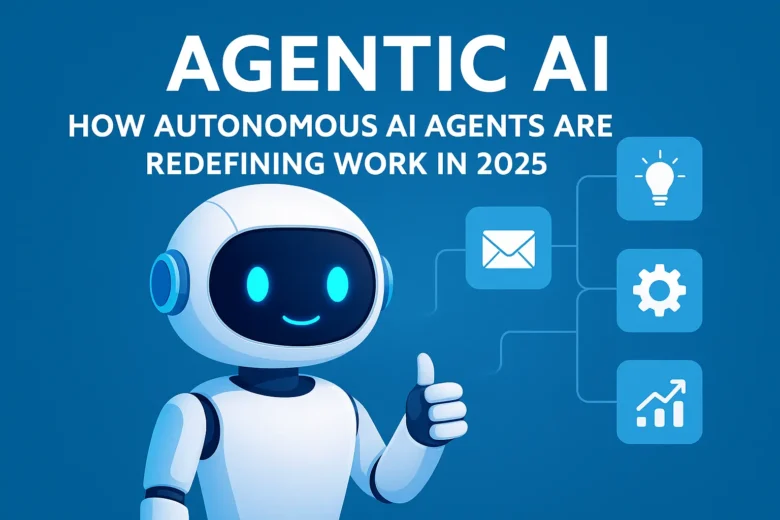Artificial Intelligence (AI) has evolved rapidly in recent years. While traditional machine learning and generative AI models focused on predicting or generating outputs, a new wave of technology called Agentic AI is reshaping the workplace. But before we dive into the details of agentic systems, let’s first understand what is AI and how it works.
What is Artificial Intelligence?
Artificial Intelligence (AI) is the simulation of human intelligence in machines that are programmed to think, learn, and make decisions. In simple terms, AI meaning refers to a system’s ability to perform tasks that usually require human intelligence.
Some artificial intelligence characteristics include:
- The ability to learn from data (machine learning)
- Problem-solving and decision-making
- Pattern recognition and automation
In short, if you’ve ever wondered “what is artificial intelligence with examples?”, think of voice assistants like Siri, AI chatbots, or recommendation engines on Netflix. These are everyday examples of AI applications that use data to make life easier.
Machine Learning: The Core of AI
To truly understand AI, you must know what is machine learning (ML). Machine learning is the process where systems learn from data without being explicitly programmed.
- Definition of Machine Learning: A type of AI that improves performance as it processes more data.
- Learning in machine learning: Refers to algorithms adapting over time.
- Examples of machine learning applications: Fraud detection, medical diagnosis, and personalized ads.
This learning machine capability is what allows AI systems to evolve and improve continuously.
What is Agentic AI?
Now comes the real game-changer: Agentic AI. So, what is it ?
👉 Agentic AI definition: It refers to autonomous AI systems that not only generate responses (like ChatGPT or other generative AI) but also take independent actions to achieve goals.
Think of it as an upgrade—while generative AI creates, it executes.
Agentic AI examples include:
- AI scheduling meetings without human input
- AI agents handling customer queries end-to-end
- Agentic software managing supply chains automatically
In short, agentic systems act more like digital employees, making decisions and completing tasks without needing step-by-step instructions.
Agentic AI vs Generative AI
It’s easy to confuse the two, so let’s clear the difference.
- Generative AI → Creates outputs like text, code, or images.
- Agentic AI → Goes a step further by taking actions, not just generating content.
This ability to act independently is what makes it meaningfully different from other types of AI we’ve seen


1 Comment